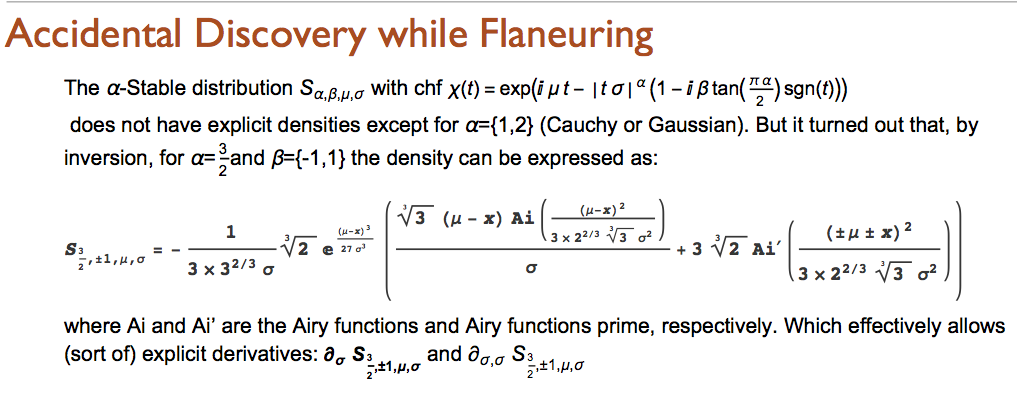Stumbled on discovery while flaneuring: some useable “explicit” densities for alpha-Stable distributions.
Monthly Archives: November 2014
Kiran Mazumdar-Shaw and Black Swan author Nassim Nicholas Taleb in Twitter spat over GM benefits – Economic Times
As the conversation veered towards innuendoes and name calling, the real issue about the benefitsrisks of GM crops went off the track. The main story which triggered this debate was about a rigorous meta analysis and one of the largest reviews on GM crops, which said that technology has wide-spread benefits, including increased crop yields, reduced pesticide use and profit for farmers.
Taleb’s argument was that Shaw was confusing risk analysis and benefits, and was trying to hide the other impacts of GM technology.
Taleb’s “The Precautionary Principle (with application to GMOs)”. Advocacy Masquerading as Rational Argument.
The Precautionary Principle (with application to the Genetic Modification of Organisms) suggests that GMOs pose a “ruin” problem, “in which a system is at risk of total failure”. Taleb and colleagues believe that the risks from GMOs, even if small, can mount up and spread because our agricultural and natural systems are globally connected. So even though each risk may be “small and reasonable”, they “accumulate inevitably to certain irreversible harm.” Taleb et.al. say these potential threats pose the “risk of global harm”. Not just local harm, which we can live with, but global.
They argue that these characteristics warrant a strong Precautionary Principle approach, essentially a ban on GMOs, at least while much more research is done.
Saying “I love literature” in place of “I love Dostoyevsky”…
Saying “I love literature” in place of “I love Dostoyevsky” or some specific author or book is equivalent to telling one’s partner “I love women” instead of “I love you”.
via Saying “I love literature” in place of “I love… – Nassim Nicholas Taleb.
A slave: someone over 40 who makes more than $100,000 but still has a boss.
A slave: someone over 40 who makes more than $100,000 but still has a boss.
via A slave: someone over 40 who makes more than… – Nassim Nicholas Taleb.
